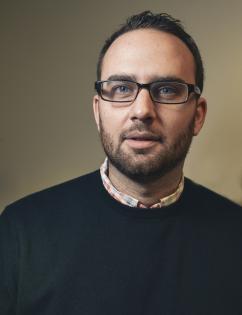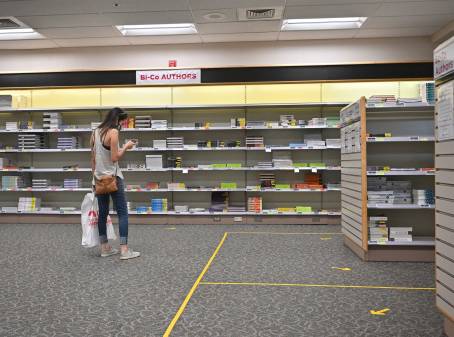Exclusive: Former Education Dept. advisor brings OER skills to Mass. school

Andrew Marcinek may have left the Department of Education, but he is still passionate about open educational resources.
Marcinek, who became the first chief OER advisor through a yearlong fellowship in the Office of Educational Technology, stepped down last month to start a new post as chief information officer for Worcester Academy in Massachusetts. Kristina Peters, a former digital learning specialist at the Nebraska Department of Education, has since taken over for him, a department spokesman wrote in an email.
While at the federal agency, Marcinek oversaw a major initiative called #GoOpen, providing guidance to schools on how they can swap out textbooks for openly licensed content, which can be a mixture of print and online materials. About 70 school districts in 14 states are currently signed on.
“I was brought on
to look at ways in which we could expand and accelerate the use of openly
licensed educational resources in K-12,” Marcinek told EdScoop in an interview.
“What we did was
looked around and said, ‘Where are some of the pain points in this type of
transition? Where are districts struggling? Where are districts doing really well?” he continued. “We needed examples from districts saying, ‘We are already doing this and saving a lot of money by not using textbooks.'”
The department recently put out a #GoOpen District Launch Packet on its website for schools to incorporate more customized lesson plans into their curricula, and Marcinek wrote a post on Medium encouraging educators to give OER a serious look.
He also pointedly calls out critics of OER in his post.
“Personally, I enjoy those who don’t think new ideas can work and promote excuses rather than solutions,” he wrote in the post. “Historically, the naysayers, with their objections, signal to everyone that this new paradigm is working and will sustain into the future.”
Marcinek said there are plenty of examples of schools already using openly available education resources including videos, software and other learning modules in their classrooms.
He cited North Kansas City School District, which decided not to purchase science textbooks for middle school students and instead investing in professional development for teachers to learn how to use new lab equipment. The district is also building its own OER platform in which teachers can share and modify different materials.
“This whole idea has really been about reinvesting in the teaching profession,” he said. “I think a lot of people look at OER and think of the idea of textbooks going away, and they automatically think that it’s going to create more work and chaos for teachers. Essentially, [teachers are] going to get better-quality professional development when districts aren’t spending over $600,000 for static textbooks that will already be somewhat out of date.”
Marcinek brings a wealth of knowledge and connections to his private school in Worcester, Mass., a prestigious boarding school with about 500 students in the high school and 150 students in the middle school.
“I’m going to continue to support school districts with OER,” said Marcinek, who plans to present at edtech conferences such as Tech & Learning Live in Princeton, N.J., and FETC in Orlando, Fla., in January.
He added that anytime he starts a new position, he takes time to listen to colleagues who have been there longer and soak in the culture of the environment.
“We’re very progressive and innovative with technology implementations, and we have some really awesome teachers,” he said. “My role and focus over the next few months are to find ways we can possibly look at and explore OER.”
Marcinek said he wants to work with other independent schools in the New England area on how to collaborate on educational resources that teachers across the area can share and use.
“That’s one of the big hallmarks of this movement: It’s something that can’t be done in isolation,” he said. “The ethos is sharing the whole idea. If you don’t share it, you don’t actually create anything.”
Editor’s Note: This story initially incorrectly referred to the Software Industry & Information Industry and the Association of American Publishers as critics of OER. EdScoop regrets the error.
Reach the reporter at corinne.lestch@edscoop.com and follow her on Twitter @clestch and @edscoop_news.




